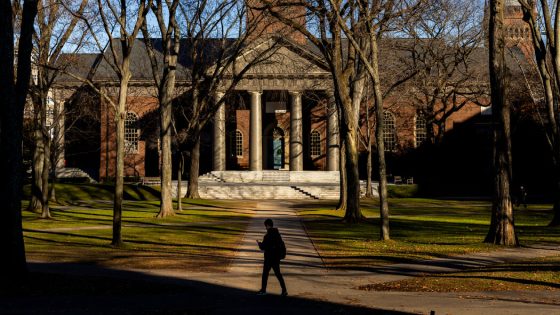Harvard will reinstate standardized testing as a requirement of admission, the university announced Thursday, becoming the latest in a series of highly competitive universities to reverse their test-optional policies.
Students applying to Harvard in fall 2025 will be required to submit SAT or ACT scores, though the university said a few other test scores will be accepted in “exceptional cases,” including Advanced Placement or International Baccalaureate tests.
In making the decision, the college said it had been persuaded by research that found that standardized testing was a valuable tool to identify promising students in disadvantaged environments and struggling schools, especially when paired with other credentials.
“Standardized tests are a means for all students, regardless of their background and life experience, to provide information that is predictive of success in college and beyond,” Hopi Hoekstra, dean of the faculty of arts and sciences, said in a statement announcing the move.
“When students have the option of not submitting their test scores, they may choose to withhold information that, when interpreted by the admissions committee in the context of the local norms of their school, could have potentially helped their application,” Ms. Hoekstra added. “In short, more information, especially such strongly predictive information, is valuable for identifying talent from across the socioeconomic range.”
Harvard was one of about 2,000 colleges across the country that dropped test score requirements over the last few years, a trend that escalated during the pandemic when it was harder for students to get to test sites. Critics of standardized tests have long raised concerns that the tests helped fuel inequality because some wealthier students raised their scores through high-priced tutoring.
But new research has challenged the conventional wisdom, finding that bright students from disadvantaged backgrounds had been overlooked by admissions offices because they had chosen not to submit test scores, even though they outperformed their peers.
A growing number of schools have now reversed their policies, including Brown, Yale, Dartmouth, M.I.T., Georgetown and Purdue.
This is a developing story.
Source Agencies


